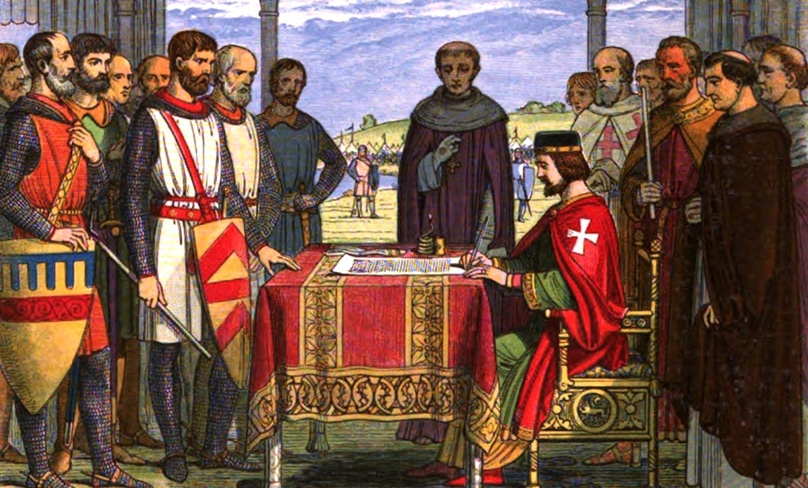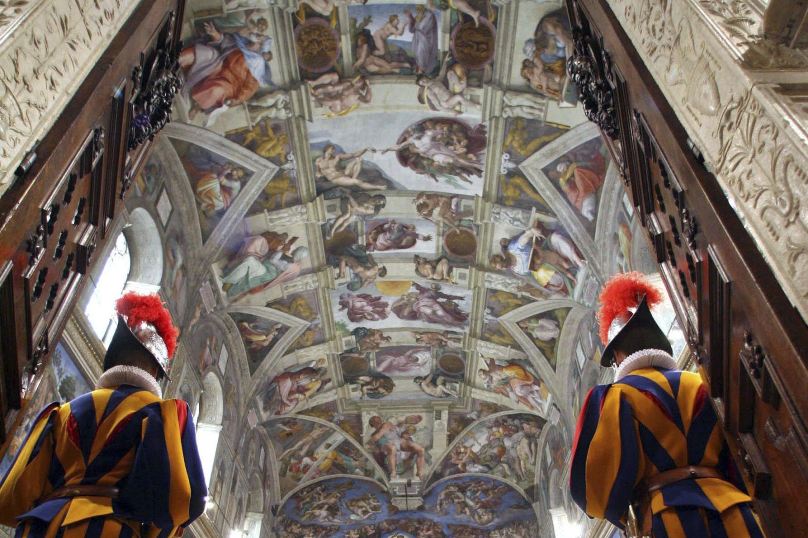
One of the tropes used by the cultural-left when denigrating conservatism is to attack it as backward looking, ossified and irrelevant.
At the same time, neo-Marxist inspired activists argue the history of western civilisation is riven with injustice, oppression and violence against what Edward Said describes as the “other.”
The global move to cancel the past by decolonising the curriculum is based on the belief the history of western civilisation is awash with imperialism and racism, leading to the subjugation and oppression of indigenous people in what is now Africa, Australia, South America and Indo-China
The reality, instead of being backward looking, is that conservatism acknowledges the need for change. Edmund Burke, often described as the father of conservatism, writes being a member of society involves a partnership, “between those who are living, those who are dead, and those who are to be born.”
Burke’s warning, “People will not look forward to posterity, who never look backward to their ancestors,” is especially true in relation to the French Revolution, beginning in 1789, that pulled down the Ancien Régime and the Catholic Church and replaced both with Madame Guillotine and the reign of terror.
“Conservatism is not reactionary, searching for a lost golden age but, instead, is based on the conviction western civilisation, as does Aboriginal and Torres Strait culture, has its roots in the past.”
At the same time as arguing the institutions and way of life on which our liberties depend represent an “entailed inheritance derived from our forefathers,” Burke also recognises such an inheritance must be open to the “principle of improvement.”
Matthew Arnold, when discussing the nature of culture, while stressing the importance of “the best which has been thought and said in the world” also stresses the importance of “turning a fresh and free thought upon out stock notions and habits.”
Conservatism is not reactionary, searching for a lost golden age but, instead, is based on the conviction western civilisation, as does Aboriginal and Torres Strait culture, has its roots in the past. Its institutions and way of life did not magically appear but have evolved over countless generations.
The origins of our political and legal system provides an illustration. Notwithstanding government totalitarian overreach as a result of COVID-19, Australia compared to Russia, China and Iraq, is relatively peaceful and stable where rights are protected, all are able to vote and the rule of law prevails.
Such an approach to governance has evolved over time and has its antecedents in the past, drawing on British common law, a Westminster parliamentary system and documents like the 1215 Magna Carta and the 1689 Bill of Rights.

As detailed in David Kemp’s The Land Of Dreams, when the First Fleet arrived in 1788 the fledging colony was lucky enough to inherit a system of government and legal rights considered “one of the wonders of Europe.”
This was a time when the rule of law became preeminent and the right to liberty and freedom became widespread. That a married convict couple who arrived with the First Fleet won a court case against the captain of their ship for losing their possessions illustrates the value of what we have inherited.
As noted by Larry Siedentop in Inventing the Individual: the Origins of Western Liberalism, the form of government the penal settlement inherited also drew on Christ’s teachings that as all individuals are made in God’s image all deserve freedom, justice and the right to live their lives free of oppression and tyranny.
With expressions like, “love thy neighbour as thyself” and “There is neither Jew nor Greek, there is neither bond nor free, there is neither male nor female: for ye are all one in Christ Jesus,” it should be no surprise that Arthur Phillip argued there would be no slavery in the new colony and that Aborigines should be treated fairly.
Instead of acknowledging, for all its sins and faults, that western nations like Australia over time have evolved into beacons of prosperity and peace in an increasingly hostile world, cultural-left activists, especially those committed to post-colonial theory, denigrate and vilify our institutions and way of life.
“While indigenous activists … must be acknowledged and celebrated, they fail to show the same respect and appreciation for Australia’s British heritage and the debt owed to the European civilisation.”
At the tertiary level, a survey by the Institute of Public Affairs evaluating 791 courses across 35 Australian universities found, not surprisingly, that students’ educations are dominated by neo-Marxist inspired critical race theory and identity politics.
Whereas school history once traced the evolution of civilisation from Mesopotamia and Egypt to the Greeks and Romans and then to what is now Europe and the United Kingdom, students are now presented with a smorgasbord of woke topics seen through indigenous, environmental and Asian perspectives. Christianity is rarely, if ever, mentioned.
While indigenous activists promoting the voice argue Aboriginal and Torres Strait Islander history and elders must be acknowledged and celebrated, they fail to show the same respect and appreciation for Australia’s British heritage and the debt owed to the European civilisation.
Activists also ignore the reality there is much about indigenous history and culture that is violent, patriarchal and oppressive.
